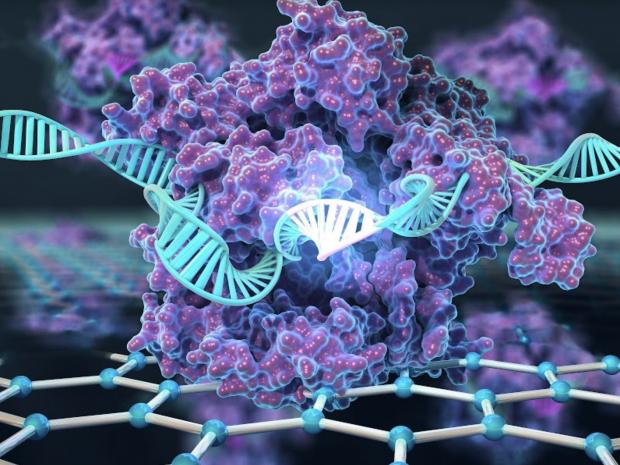The story behind CRISPR-chip, the first CRISPR-powered Transistor: From research bench to commercialization

Speaker:
Kiana Aran, PhD
Chief Scientific Officer, Cardea Bio
Assistant Professor of Medical Diagnostics and Therapeutics,
Keck Graduate Institute, Claremont Colleges, CA
Abstract:
The discovery of CRISPR technology has revolutionized the fields of transcriptional activation and repression, genome editing, gene-based therapeutics, and diagnostics. The applications of this technology have been rapidly expanding as researchers continue to discover new Cas enzymes, engineer high fidelity Cas orthologs, and modify and synthesize guide RNAs to efficiently direct these Cas enzymes to their targets. In this talk, we will introduce the first-generation DNA biosensors that combine CRISPR technology with the ultra-sensitivity of graphene-based field effect transistors (gFETs) to detect target DNA sequences within the whole genome without the need for DNA amplification. This technology, termed CRISPR-Chip™, utilizes the genome searching capability of Cas and reprogrammable RNA molecule to unzip the double-stranded DNA and bind to its target. This binding event causes a change in graphene conductivity which can be detected in real-time within the gFET construct. CRISPR-Chip was utilized to detect target genes within clinical samples obtained from patients with Duchenne Muscular Dystrophy (Cover of Nature BME-2019), and single cell point mutations in Sickle cell disease and ALS without the need for amplification (Nature BME 2021), within less than 30 minutes. The applications of this technology platform go beyond diagnostics. CRISPR-Chip can provide greater insights on the mechanism of CRISPR and can lead to safe and more effective utilization of this gene editing technology for therapeutic applications.
Dr. Kiana Aran is an Assistant Professor of Medical Diagnostics and Therapeutics at Keck Graduate Institute, a member of the Claremont Colleges, a visiting Assistant Professor at the University of California Berkeley, and the Co-Founder and Chief Scientific Officer at Cardea Bio. Dr. Aran also serves as a Consultant of Drug Delivery and Medical Diagnostics for the Bill & Melinda Gates Foundation. She received her undergraduate degree in electrical engineering from the City University of New York in 2007 and her Ph.D. in biomedical engineering from Rutgers University in 2012. She then continued her postdoctoral studies in bioengineering at the University of California Berkeley and was a recipient of the National Institutes of Health (NIH) postdoctoral training fellowship at the Buck Institute for Aging Research in 2015. Her research efforts focus on designing novel biosensing platforms, using 2D nanomaterials, for early disease diagnosis as well as utilizing biology as tech elements for a variety of biosensing applications. In addition to biosensing, she combines various engineering modules to develop tools to better understand the process of aging. Dr. Aran’s scientific vision is to explore the utility of nano-electronic systems to develop transformative and customizable platforms for multiomics applications and commercialization of these platform. Her efforts have been recently recognized by many awards in science and STEM including the Clinical OMICs 10 under 40 Award and the Athena Pinnacle Award. Dr. Aran was also the recipient of the NSF Career Award to develop the next generation of electronic sensors.

